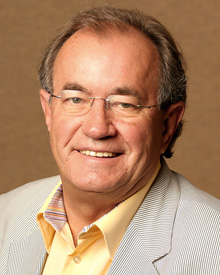
The Canadian Auto Workers union raises the prospect of strike action to reverse General Motors Corp.’s planned closure of its pickup plant in Oshawa, ON.
“We have power and we’re going to use every bit of it,” CAW President Buzz Hargrove angrily warns during a highly emotional news conference broadcast from Toronto.
Asked if the union would contemplate strike action both in Oshawa and the other Canadian plants where it represents workers, Hargrove says: “We haven’t ruled out anything.”
Usually dynamic, the CAW leader furiously responds to the Oshawa decision, part of a major capacity utilization initiative meant to reconcile the auto worker’s operations with consumer demands trending toward cars and away from light trucks.
“We are going to fight this decision,” Hargrove says. “The market is not the problem. General Motors is still going to be building pickup trucks. The question is where are they going to build them? Who’s going to have the jobs? The Canadians have earned the right to those jobs.”
But in a teleconference conducted simultaneously to Hargrove, GM Chairman and CEO Rick Wagoner says the market is dictating change. Oshawa builds crew-cab and extended-cab pickups, he notes, adding: “Those customers are most rapidly fleeing the truck and SUV market and moving to other segments.”

Wagoner also refutes any suggestion that Detroit-based GM’s decision is political, sacrificing Canadian jobs in favor of those in the auto maker’s home country.
“This isn’t about we like this plant better than another one,” he says. “It’s about the fact that the market has radically changed, and for the good of the company we have to adapt to it. As happens when you get sudden shifts in demand or outlook in market condition, decisions have to be driven by these pragmatic matters.”
Just last month, the CAW reached a milestone agreement with GM and did so in unprecedented fashion – four months before the current contract is set to expire.
In exchange for major concessions, which include a 3-year wage freeze, GM agreed to maintain current-model pickup production at Oshawa through the life of the contract, as well as the next-generation Chevrolet Silverado and GMC Sierra.
Adds Chris Buckley, president of Oshawa-based CAW Local 22 and head of union’s national GM bargaining committee: “We froze our wages. We froze our cost-of-living (allowance). We made changes in our benefit packages, all in the sense of closing the gap, giving them a competitive edge to remain in business in Canada.”
The product guarantees were critical to the CAW’s acceptance of these measures, Buckley says.
“Can you imagine how our members today feel that attended ratification meetings on May 16, ratified the agreement in great numbers, (by a) great percentage and today, having been told by General Motors, ‘You don’t have a job in 2009’? That’s absolutely disgraceful on behalf of General Motors Corp.”
There is insufficient evidence the market has shifted, Hargrove fumes.
Oshawa also was awarded production of gasoline-electric hybrid versions of the Silverado and Sierra. Output is scheduled for begin in November, and these should have been used as a true test of consumer direction, Hargrove says.
“No intelligent human being would ever agree that there’s been such a (market) change in two weeks, that somehow General Motors would have to back away from a commitment,” he says. “This seems to me a panic decision. That really raises the question, in mind, for the first time, about the leadership, top of house, at General Motors.”
Chrysler LLC and Ford Motor Co. are not back-tracking on their commitments to CAW plants, Hargrove notes, adding Ford is today launching production of its Flex cross/utility vehicle in Oakville, ON. Home to the Ford Edge and Lincoln MKX, Oakville has been promised a fourth product, he says.
The swiftness of GM’s action also signals trouble for the auto maker’s long-term labor relations, Hargrove suggests.
“It violates the company’s moral obligation to its workers and their families,” he says. “It violates the whole concept of collective bargaining. If we (can’t) sign a document and go to our members and have our members ratify a collective agreement based on what was agreed to in that document, what’s that say for the future of collective bargaining?”
While GM makes no mention of its plans for the hybrid pickups, Hargrove suggests they are destined for the auto maker’s plant in Silao, Mexico.
“It ain’t going to be moved to Mexico without a fight from our union,” Hargrove says.
– with James M. Amend




